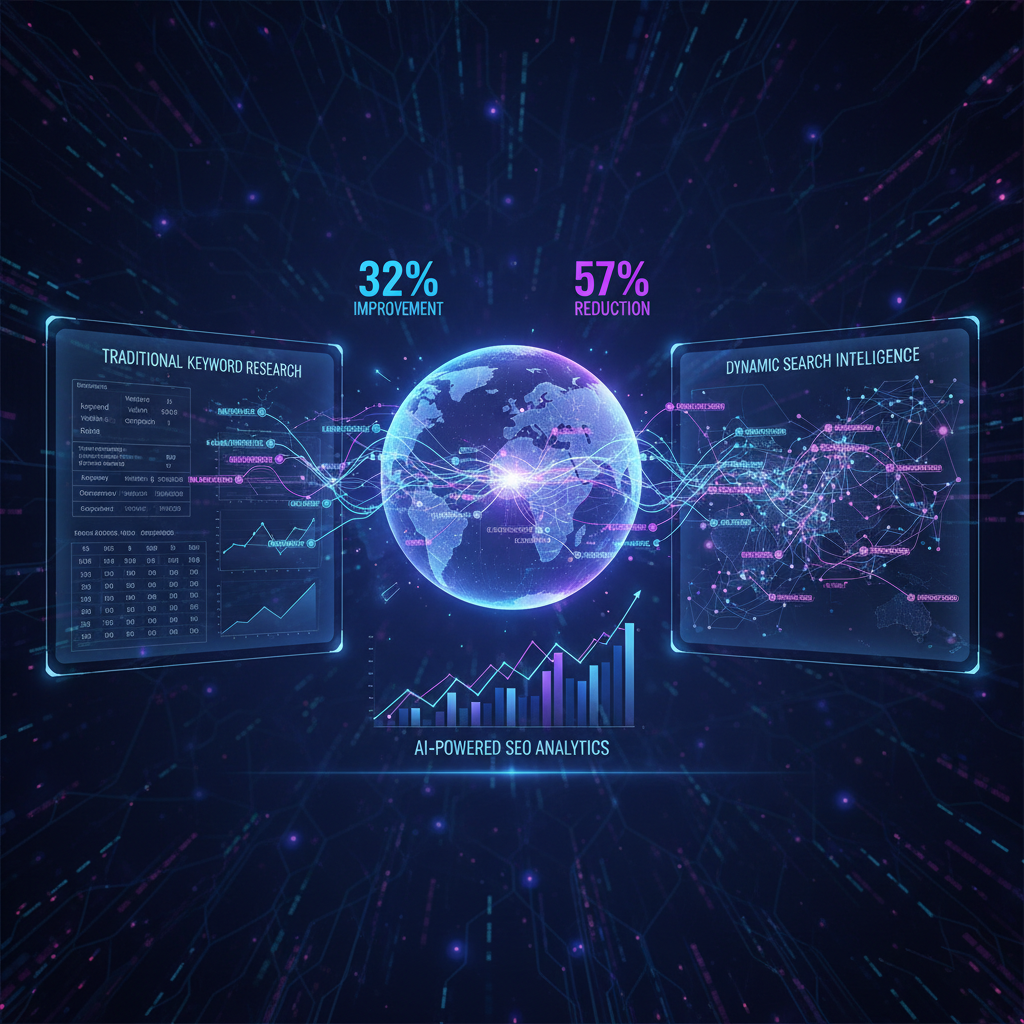
Frameworks, core principles and top case studies for SaaS pricing, learnt and refined over 28+ years of SaaS-monetization experience.
Thank you! Your submission has been received!
Oops! Something went wrong while submitting the form.
Join companies like Zoom, DocuSign, and Twilio using our systematic pricing approach to increase revenue by 12-40% year-over-year.

In the ever-evolving landscape of digital marketing, staying ahead in search engine rankings has become increasingly complex. As algorithms grow more sophisticated, marketers are turning to advanced technologies to maintain competitive edge. Among these innovations, agentic AI is emerging as a game-changer for SEO practitioners seeking more intelligent and automated approaches to search optimization.
Traditional SEO has typically involved manual keyword research, content optimization, and link-building—often requiring significant time investment with uncertain returns. However, as search engines like Google implement increasingly nuanced algorithms featuring AI components (like RankBrain and BERT), the need for more sophisticated SEO tools has become evident.
Enter agentic AI—artificial intelligence systems designed to act autonomously toward specific goals while adapting to changing environments. Unlike basic automation tools, agentic AI for SEO can understand context, make decisions, and adjust strategies based on performance data.
Search intelligence systems represent the convergence of agentic AI capabilities with SEO expertise. These platforms go beyond basic keyword research tools by incorporating:
According to a 2023 report by Gartner, organizations implementing AI-driven search intelligence tools saw an average 32% improvement in organic traffic quality compared to those using traditional SEO methods alone.
Modern search intelligence systems excel at understanding the nuanced differences between search queries. For example, these systems can distinguish between informational queries ("how to optimize website speed"), transactional queries ("buy website optimization service"), and navigational queries ("Google Search Console login").
By analyzing these patterns, agentic AI can help create content that precisely matches searcher intent, resulting in higher relevance scores from search engines. A study by SEMrush found that content aligned with search intent ranks 25% higher on average than keyword-stuffed alternatives.
Perhaps the most powerful aspect of search intelligence systems is their ability to continuously optimize content based on performance data. Unlike traditional approaches where content updates might happen quarterly, AI-based systems can:
"The difference between traditional SEO and AI-powered search intelligence is like comparing manual bookkeeping to modern accounting software," explains Dr. Jamie Martinez, Chief AI Officer at SearchMetrics. "The fundamentals are the same, but the efficiency and accuracy represent an entirely different level of capability."
Maintaining visibility across hundreds or thousands of keywords has traditionally required large SEO teams. Search intelligence systems powered by agentic AI can monitor unlimited keywords, detect ranking changes, and automatically implement optimizations—all without constant human oversight.
This capability proves especially valuable for e-commerce sites or publishers with vast content libraries. According to BrightEdge research, companies using AI-powered ranking automation saw a 57% reduction in time spent on routine SEO tasks while achieving better results.
A leading enterprise software company implemented an agentic AI search intelligence system to address declining organic traffic. The system analyzed their 2,000+ page website and identified:
Within three months of implementing the system's automated recommendations, the company saw a 43% increase in organic traffic and a 27% improvement in lead quality from search channels.
Search intelligence isn't limited to enterprise applications. Smaller businesses can leverage scaled versions of these technologies to compete effectively.
For example, a regional furniture retailer used an AI-powered search optimization platform to analyze local search patterns. The system identified highly specific long-tail keywords with low competition that larger competitors had overlooked. By creating targeted content for these terms, the retailer achieved first-page rankings for 78% of their target keywords despite having a fraction of their competitors' marketing budgets.
While search intelligence systems offer remarkable capabilities, they also present certain challenges:
As Jake Sullivan, SEO Director at Conductor, notes: "The companies seeing the greatest success with search intelligence aren't those replacing their SEO teams with AI but those empowering their experts with these new capabilities."
As search engines themselves become more AI-driven, the future of search optimization will increasingly rely on matching AI with AI. Several emerging trends point to where search intelligence is headed:
For organizations looking to implement search intelligence systems, consider these starting points:
The integration of agentic AI into SEO strategy represents a significant shift in how organizations approach search optimization. By leveraging intelligent systems that can autonomously analyze, optimize, and adapt to changing search landscapes, companies can achieve more consistent results while freeing human experts to focus on strategic initiatives.
As search algorithms continue to evolve toward more sophisticated understanding of user intent and content quality, the organizations that successfully implement search intelligence systems will increasingly find themselves with a substantial competitive advantage in organic search visibility.
The question is no longer whether AI will transform SEO practice, but rather how quickly organizations can adapt to this new paradigm of search intelligence.

Join companies like Zoom, DocuSign, and Twilio using our systematic pricing approach to increase revenue by 12-40% year-over-year.